Geometry worksheets activities for Ages 4-5
7 filtered results
-
From - To
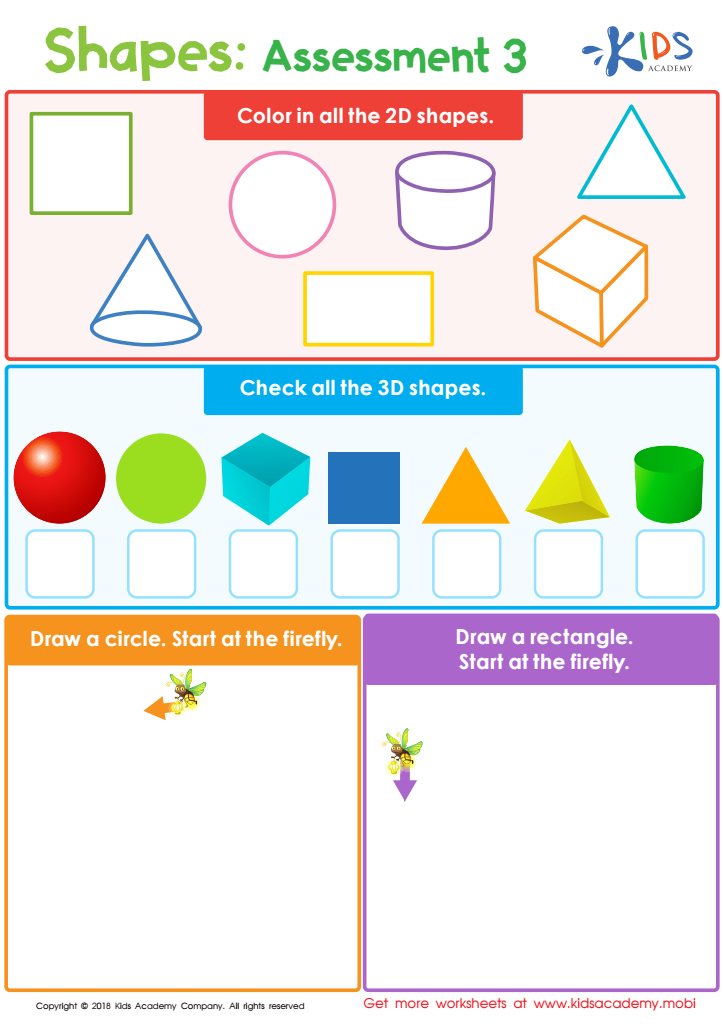

Shapes: Assessment 3 Worksheet
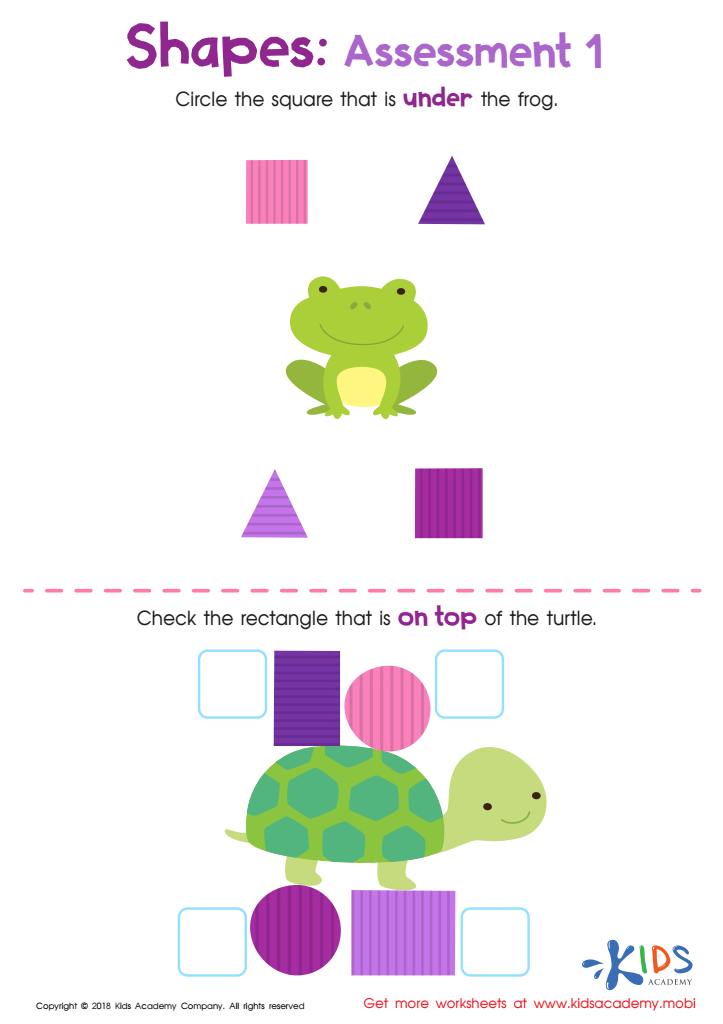

Geometry – Assessment 1 Worksheet
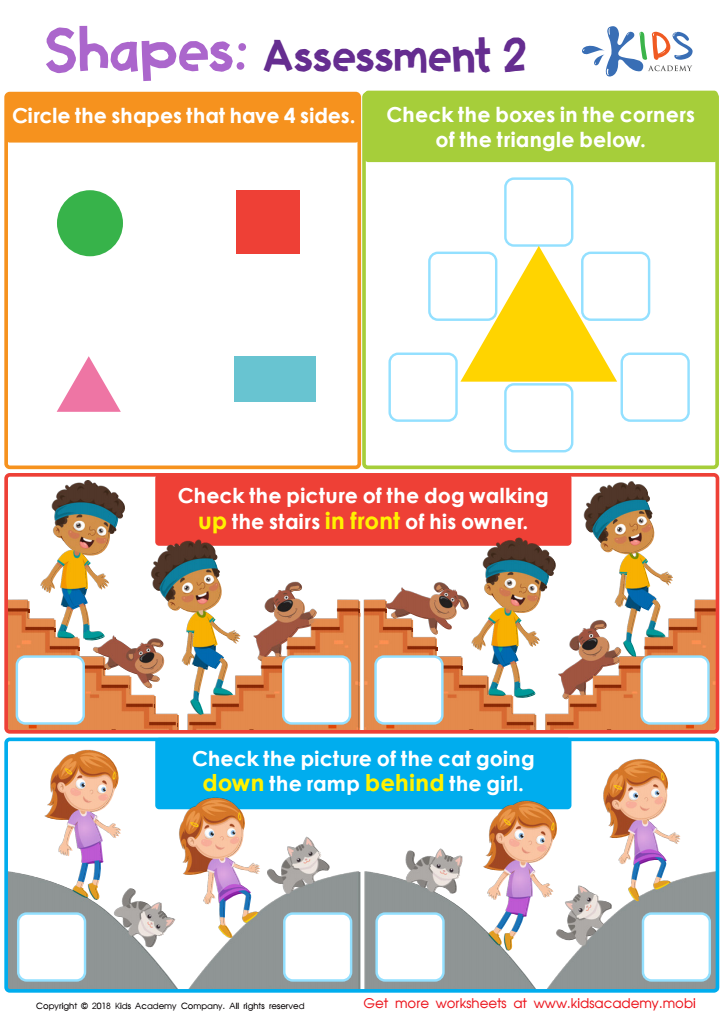

Shapes: Assessment 2 Worksheet
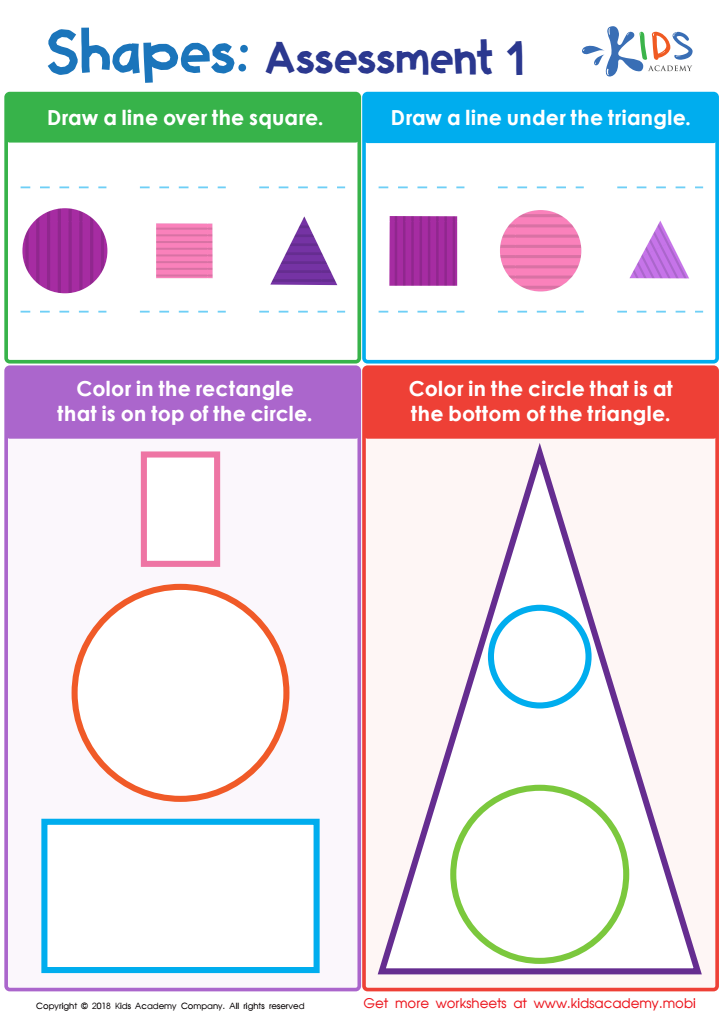

Shapes: Assessment 1 Worksheet
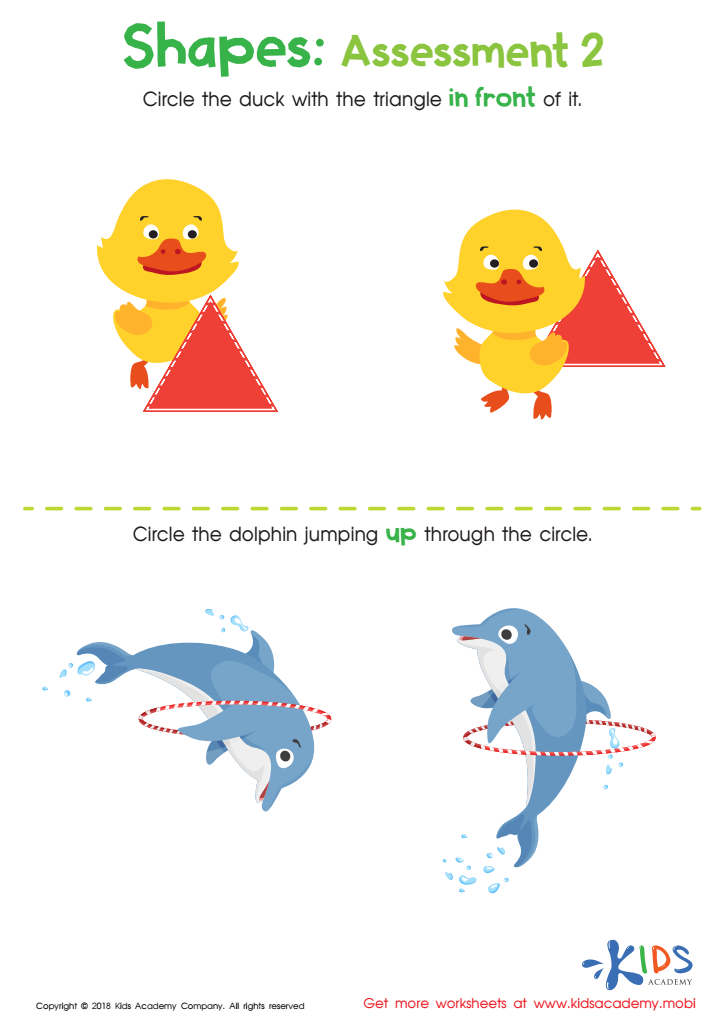

Geometry – Assessment 2 Worksheet
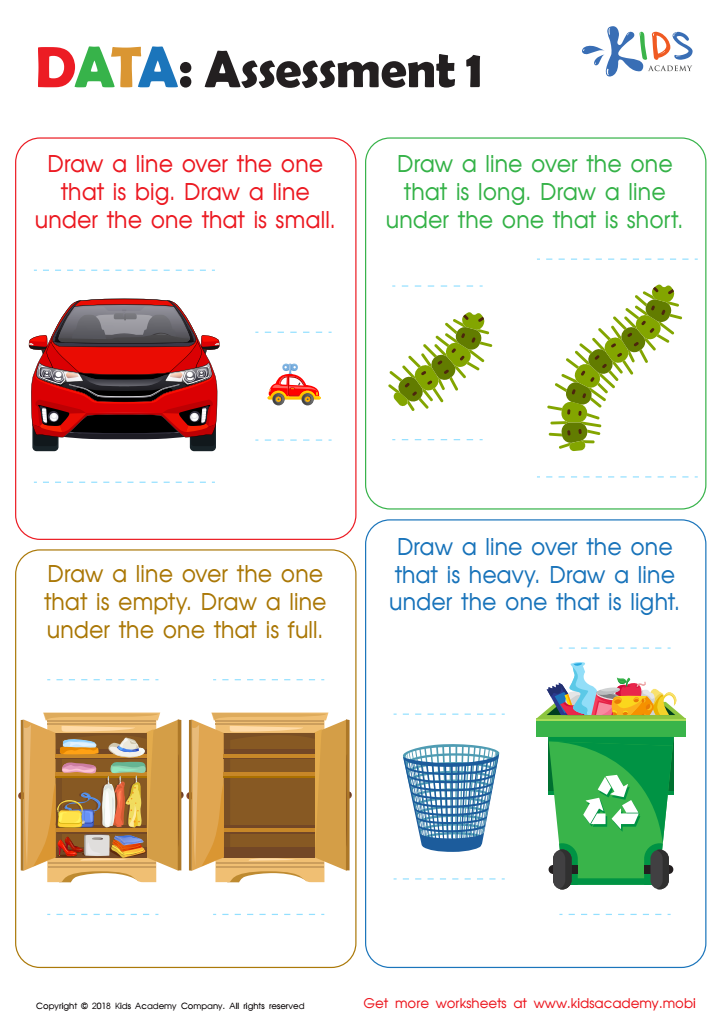

Data: Assessment 1 Worksheet
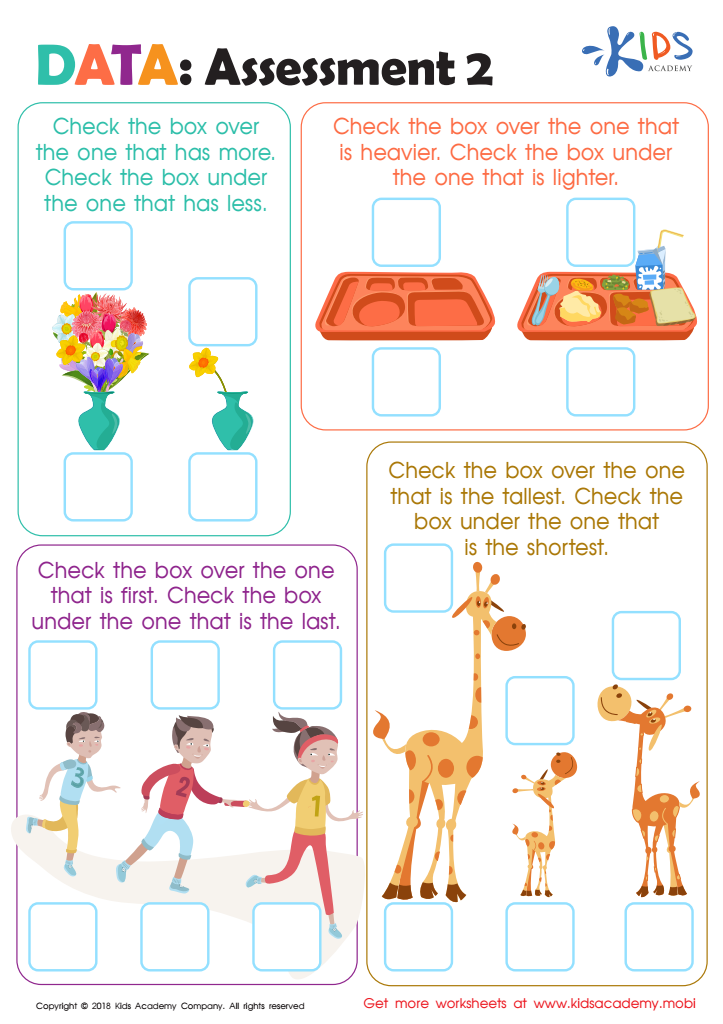

Data: Assessment 2 Worksheet
Geometry worksheets activities are an indispensable tool in the world of mathematics education, providing a hands-on, interactive means for students to engage with the complex and fascinating world of geometry. These worksheets serve a multitude of purposes, each enhancing the learning experience in unique ways.
Firstly, Geometry worksheets activities offer a structured approach to learning that helps students gradually build up their understanding of geometric concepts. From the basics of shapes and sizes to more complex topics like the Pythagorean theorem, angles, and volume calculations, these activities guide learners through each step. They allow students to practice and internalize concepts at their own pace, making the learning process both efficient and effective.
Moreover, these worksheets are designed to cater to a wide range of learning styles. Whether a student is a visual learner who benefits from pictorial representations or a tactile learner who needs to write and solve problems physically, Geometry worksheets provide the necessary flexibility. This inclusivity ensures that every student has the opportunity to grasp geometric concepts thoroughly.
Another significant advantage of Geometry worksheets activities is their ability to foster critical thinking and problem-solving skills. Geometry is not just about understanding shapes and formulas; it's about applying these concepts to solve real-world problems. Through carefully crafted activities, students are challenged to think creatively, reason logically, and develop solutions to complex problems, skills that are invaluable not only in mathematics but in everyday life as well.
Furthermore, these activities allow for immediate feedback and self-assessment. Students can quickly identify areas of weakness and focus their efforts on improving those areas, promoting a growth mindset and encouraging continuous learning.
In conclusion, Geometry worksheets activities are more than just educational tools; they are catalysts for engagement, understanding, and intellectual growth in the realm of mathematics. By providing a structured yet flexible approach to learning, catering to different learning styles, fostering critical thinking, and enabling self-assessment, they play a crucial role in shaping proficient, confident, and enthusiastic learners.
 Assign to the classroom
Assign to the classroom











